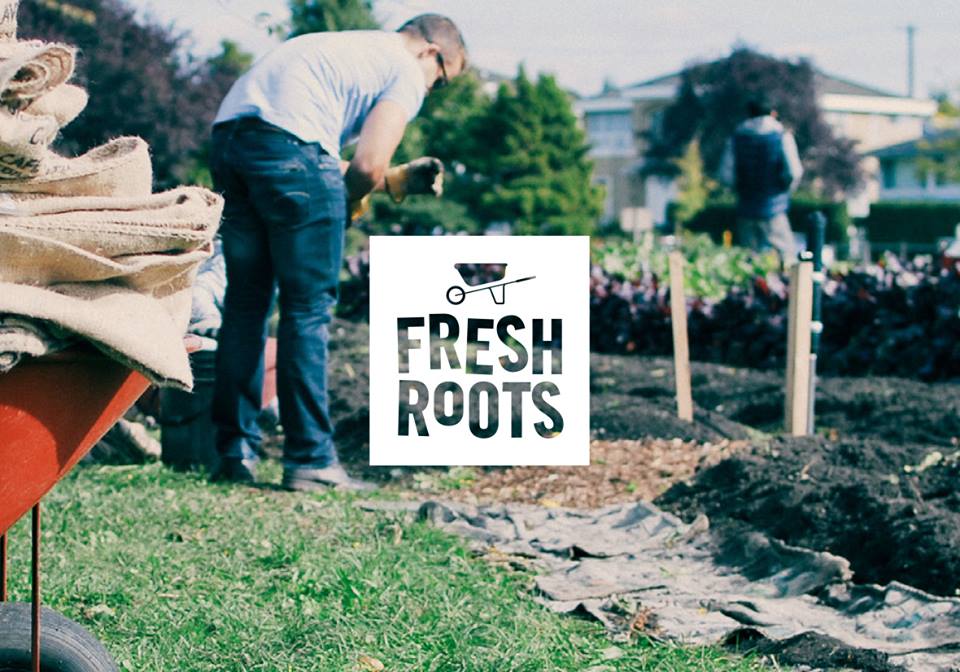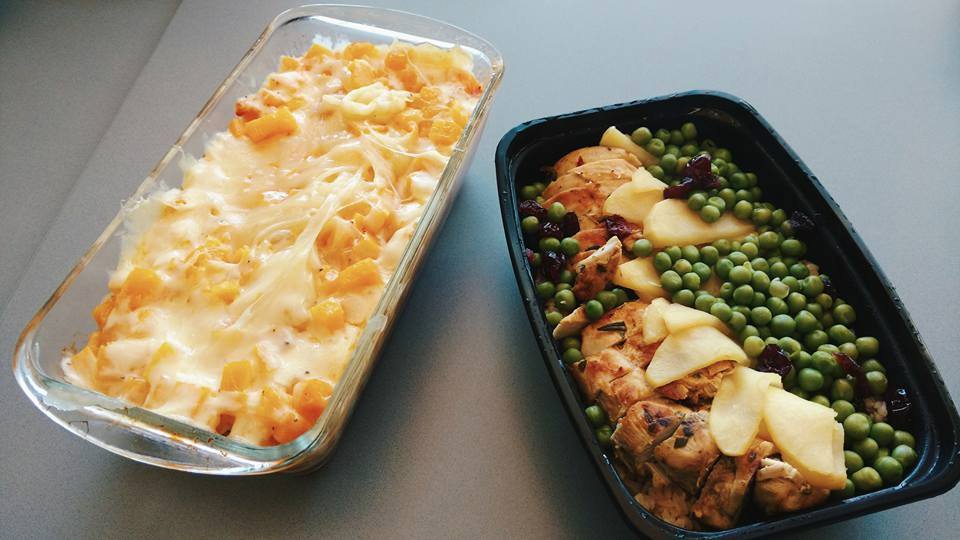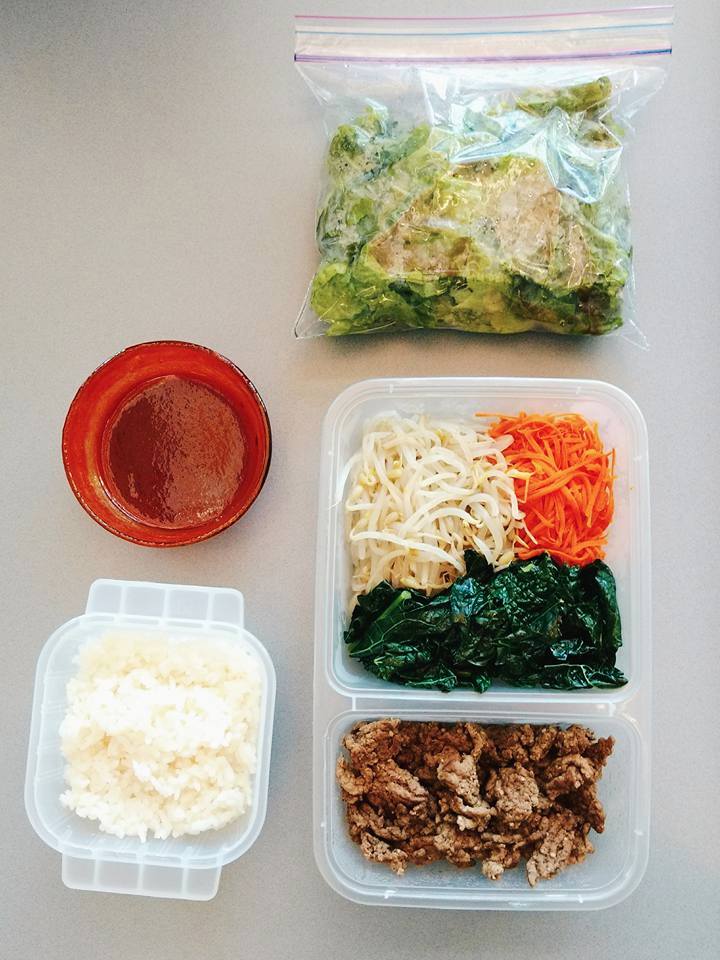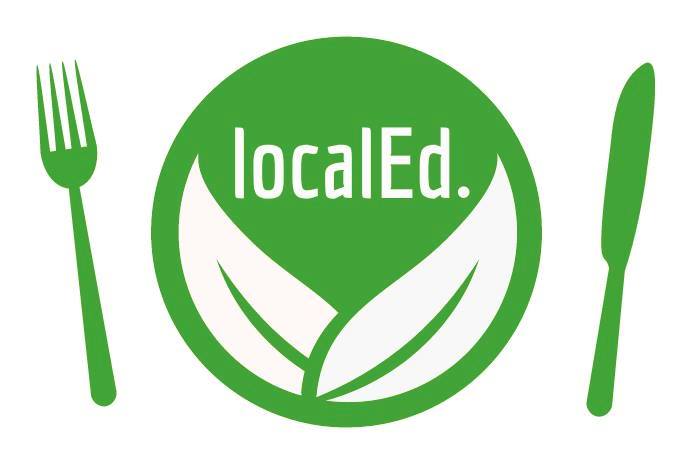THIS IS NOT THE END!

localEd’s community project is aimed to show the feasibility of integrating local foods into schools by demonstrating the cost-effectiveness and social benefits of local food, so we ask: is it feasible to integrate local food into Vancouver school cafeterias?
As localEd, a team of Food and Nutrition students, we are collaborating with Fresh Roots, an organization who envisions a world where everyone has access to healthy food, to analyze the Vancouver school food system to increase the use of local food within schools. Our interest was inspired by The Center for Ecoliteracy run program: California Thursdays, a district-wide school lunch program that has seen great success.
localEd’s objectives were to (1) find a survey that evaluated students’ perceptions of their cafeteria (2) create recipes featuring local food (3) calculate and adjust their costs (4) identify cafeteria equipment (5) conduct a taste test of proposed recipes. We also inquired about the definition and socioeconomic benefits of using local food, and the extent of local food sources in Vancouver to feed a large population of students year-round.
In understanding the context of our project, we obtained qualitative and quantitative data from public resources and professionals within the Vancouver school community. With their suggestions, we assembled five recipes using local ingredients. A nutritional and price analysis of each recipe was completed to ensure guidelines were adhered. This was followed by a taste test of the recipes amongst localEd. In comparison to retail and wholesale prices, we found the recipes fit BC’s nutritional guidelines and the target price point.


From our research and analysis, we conclude that it is possible for Vancouver schools to increase the use of local foods in cafeterias. To support means of food security and community, we recommend schools to highlight in season local foods into their cafeteria menus, challenge students enrolled in culinary programs to cook with locally-grown food, and invest in collaborative food contracts with other schools. Through the concept of collaborative action, a network of professionals and individuals who are interested in solving the local food issue should be developed. Furthermore, using asset-based community development principles, we advise schools to invest in pre-existing local food-related resources within the schools: schoolyard gardens, students, cafeteria staff and teaching kitchens. Lasty, if possible a district-wide lunch program can be implemented to provide locally-sourced meals to students in Vancouver.
WHAT
Throughout the term, there were many moments of significant change that took place, and although there were difficulties, there were also moments of excitement and success. Through developing and managing the community project, localEd collectively agrees that the most memorable moment of the community project was conducting the taste-testing of the recipes.
As one of our main objective in the beginning of the project to conduct a taste-testing within the schools, we were unfortunately unable to follow through due to time restrictions and the difficulty in setting up access into the schools. Instead, we decided to administer recipe taste-testing amongst the localEd team members. We rated a total of five different recipes on a scale of 1 to 10 on appearance, taste, smell, mouthfeel, and overall satisfaction. Seeing our end products on the table was highly rewarding. Furthermore, being able to share delicious food amongst the team members brought localEd closer together. We were also able to draw connections and reflect on our initial goals and expectations of our project. To create our menu, we spent a lot of time researching on what would be appropriate recipes for students. To ensure the recipes would work out, they were reviewed by professional Chef Golob from Place Vanier Residence. This taste-testing was an important data collection process that also served as a rewarding experience for the localEd team. From this event, we were able to say that our recipes tasted really good. We feel confident to say that our recipes featuring local food will be appealing to students.
SO WHAT
Although the taste-testing did not follow the original plan involving student opinion, we were glad to have incorporated it within our project as were were able to gain a lot of insight from the recipes. It allowed us to determine if the chosen recipes would be a good fit within the school setting: within school budgets, nutritious and delicious. In addition, having our recipes reviewed by a professional chef was helpful in identifying flavours that complemented each other; however, we felt that it was still important for us to test the recipes ourselves. Assuming that our preferences would match that of the students’, the taste test gave us an idea of which recipes they would be most popular. By visual inspection and referral to BC’s nutritional guidelines and Canada’s Food Guide, we were also able to determine proper portioning and prices. Lastly, this taste test made the research experience more enjoyable because many of us came into the project hoping to do something just like this. As students of Nutrition and Food Science background, we wanted to incorporate food preparation into the project, and this was a great opportunity to do so.
NOW WHAT
While the taste test conducted within our group was a valuable and enjoyable experience that allowed our group to enjoy the hard work we’ve accomplished thus far, localEd would really like to see this taste test experience shared by more people. We are very proud of our project this semester, but there is definitely a worry that this work won’t be carried through in the future. It would extremely satisfying to know for certain that even though localEd was not able to conduct taste tests for our recipes with the students, another group will.
Now that this semester is coming to a close and localEd is wrapping up our project, we are determined to prepare the next group to best of our abilities. We are creating a contact list that gives them access to the network of professionals who provided important information this semester. Our recommendations and suggestions will be included in our final report, and localEd is enthusiastic about helping out the group next term if they decide to reach out to us. We will provide our own contact information in the final report. In addition, we are arranging a meeting with Marc from Fresh Roots to give a full run-through of our project, to cover any information that localEd did not include in our presentation this week to the LFS 350 teaching team and community members. These actions will help ensure that this project will continue in the future and definitely will make the localEd team feel better about concluding our work on a positive note.
One issue that we are aware of while completing all of our concluding tasks is to be considerate of the busy schedules and other obligations that our community partners may have. So while we would like to discuss our project with many of the people we have worked with this term as soon as possible and look towards the future, we understand that it is a time-consuming process. We also know that there is the possibility none of the groups next semester will be interested in carrying this project forward. Thus, we must be prepared for such a possibility. localEd resolves to end our work respectfully, and we definitely want to avoid negative consequences such as making our community partners or the next group feel pressured in any way.
We hope that next semester holds many opportunities for more research into the school food system and that others will take an interest in local food in school cafeterias. localEd looks forward to the the future of this project and remains optimistic from meeting all the wonderful community members who have a passion for local food and helped us out tremendously these past few months.
localEd Team — Friday Dec 5, 2015
